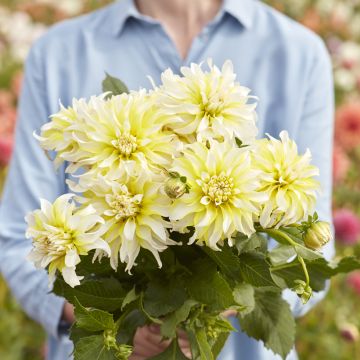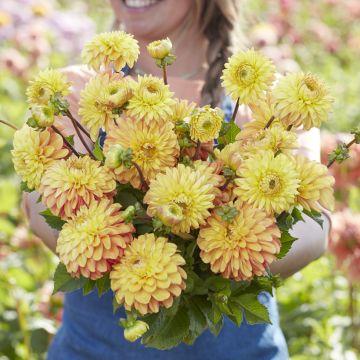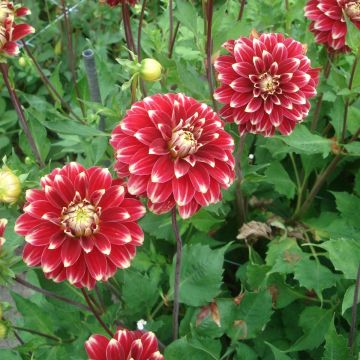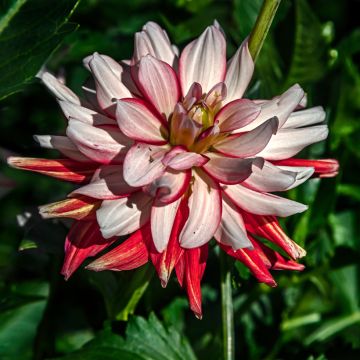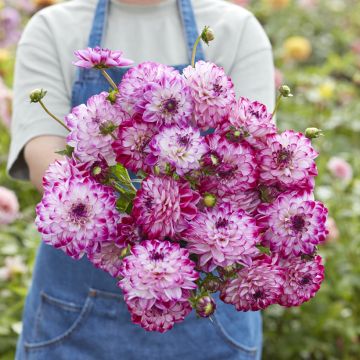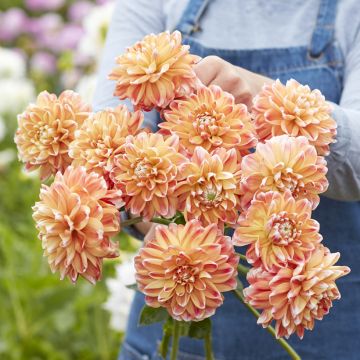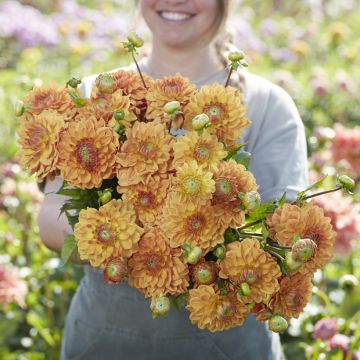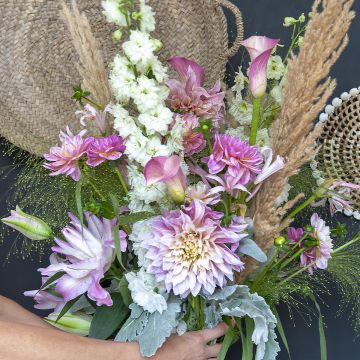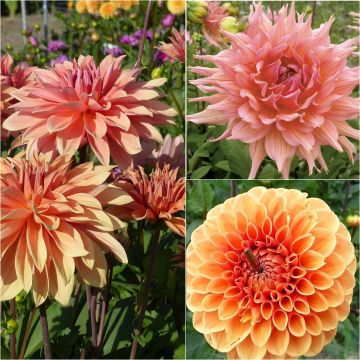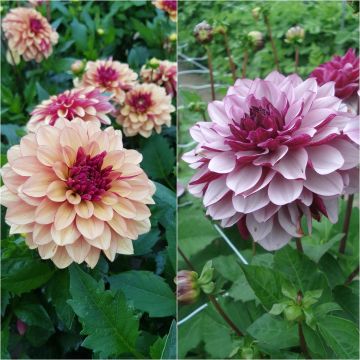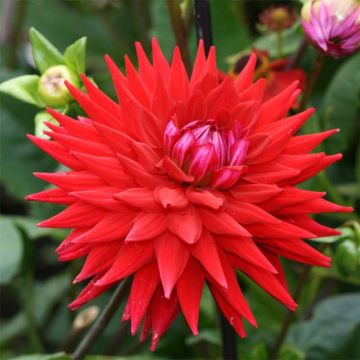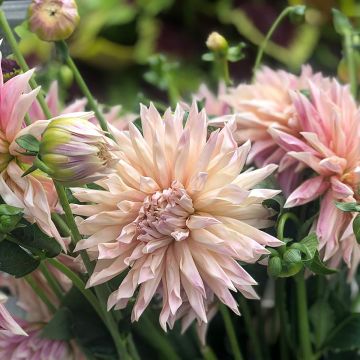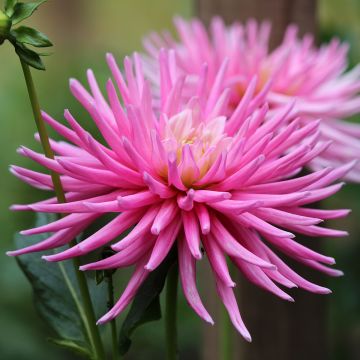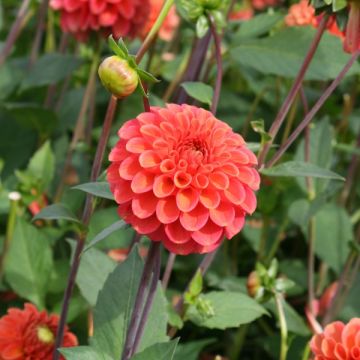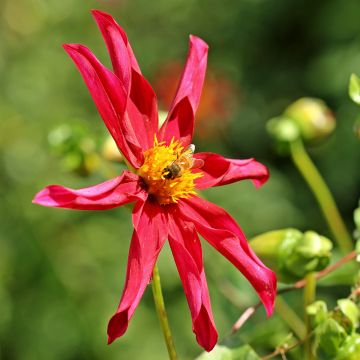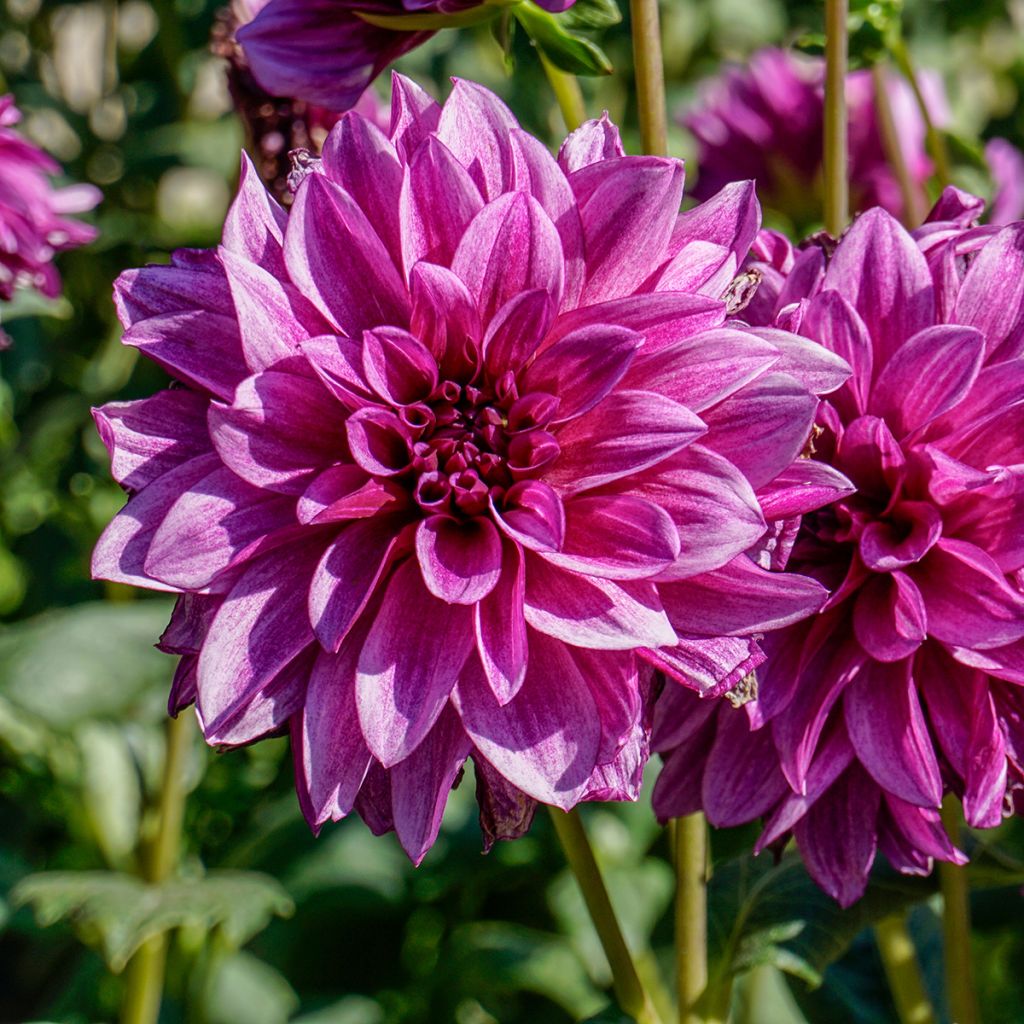

Dahlia Blue Bell
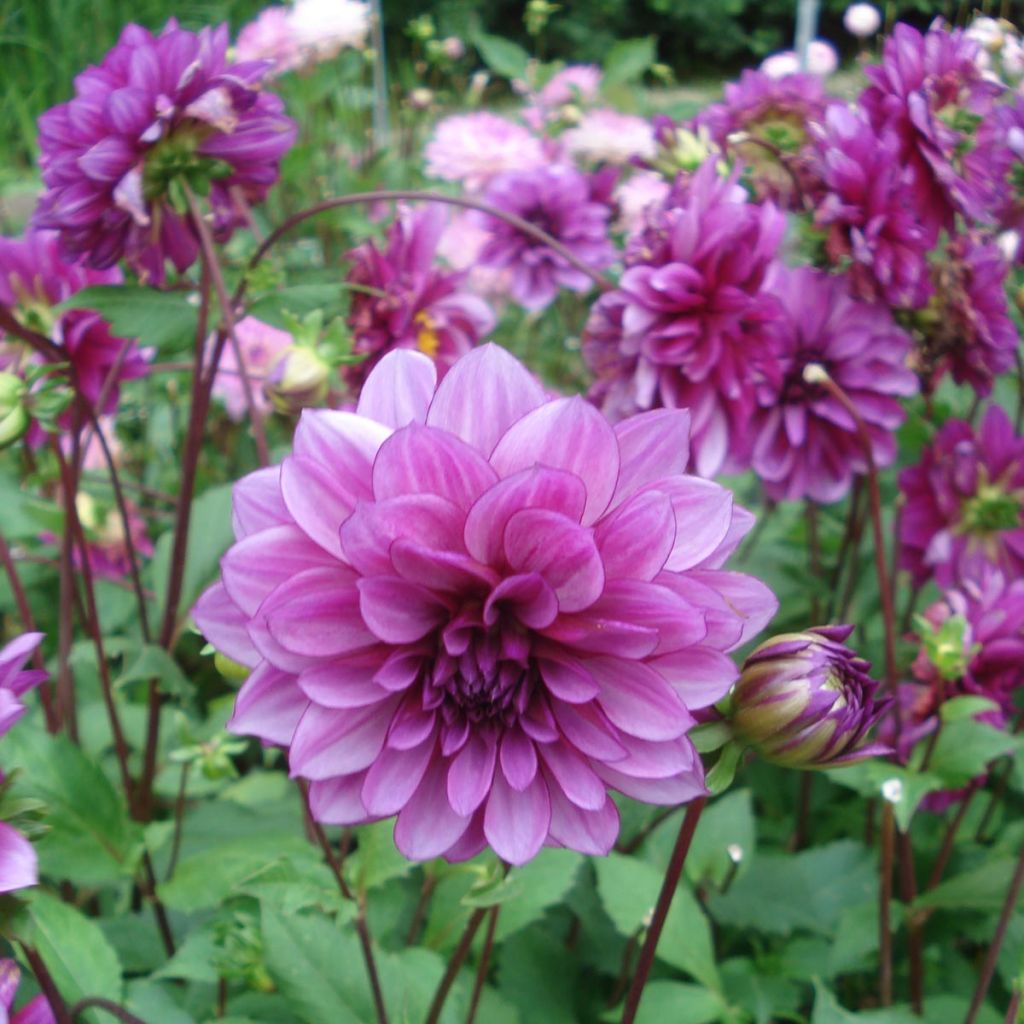

Dahlia Blue Bell
Dahlia Blue Bell
Dahlia Blue Bell
Dahlia
On my order of 3 dahlias, only 1 shoot has come up (but not flowered). I think this is it but I'm not sure.
FLO, 30/09/2024
Special offer!
Receive a €20 voucher for any order over €90 (excluding delivery costs, credit notes, and plastic-free options)!
1- Add your favorite plants to your cart.
2- Once you have reached €90, confirm your order (you can even choose the delivery date!).
3- As soon as your order is shipped, you will receive an email containing your voucher code, valid for 3 months (90 days).
Your voucher is unique and can only be used once, for any order with a minimum value of €20, excluding delivery costs.
Can be combined with other current offers, non-divisible and non-refundable.
Home or relay delivery (depending on size and destination)
Schedule delivery date,
and select date in basket
This plant carries a 6 months recovery warranty
More information
We guarantee the quality of our plants for a full growing cycle, and will replace at our expense any plant that fails to recover under normal climatic and planting conditions.
Would this plant suit my garden?
Set up your Plantfit profile →
Description
Dahlia 'Blue Bell' is a magnificent decorative variety. The colour of its indigo-violet flower heads is a rare shade that will bring personality to your borders. Dahlias are also perfect for growing in pots. This tall variety will need a large container to enjoy its long-lasting flowering on a patio.
Dahlias belong to the Asteraceae family and are originally from the high plateaus of Mexico. There are currently thousands of horticultural varieties that have conquered gardens worldwide. They are tender perennials with fleshy tubers. Dahlias are classified according to the shape of their flower.
'Blue Bell' is classified in the category of decorative dahlias. In this group, the heads are thicker than wide and are often large. This variety's blooms measure 10 to 12cm (4 to 5in) in diameter. Many rows of ligules overlap. Those on the lower levels are often revolute (turned towards the stem), those on the upper levels are inflexed, meaning they bend towards the heart of the inflorescence and are very concave. Without being completely blue, these come close with their magnificent indigo colour. Flowering takes place from July to November. The plant will reach 100cm (39in) in height and 80cm (31in) in width. Its branching stems are hollow. Its leaves are opposite and pinnatisect, meaning they are divided into 3 or 5 leaflets, which form denticulate lobes. The stems and leaves are medium green.
Remove faded flowers to encourage new blooms. You can use cut flowers to make colourful bouquets, combining them with other varieties.
They are bright plants that need a lot of sun. They will create colourful spots in the middle of a bed with tall rudbeckias, heleniums, cosmos, or even sedums. Plant it with Pennisetum villosum, which will add softness and delicacy to the decor.
Dahlias are stars of borders and ornamental gardens, confidently accompanying the most beautiful flowers. However, they are also appreciated alongside vegetable plants. In Mexico, this tuberous plant was first cultivated as a root vegetable for consumption. Its poor taste qualities quickly saw it categorised as an ornamental plant. Since then, the interest in their beautiful exuberance has never waned.
Report an error about the product description
Dahlia Blue Bell in pictures
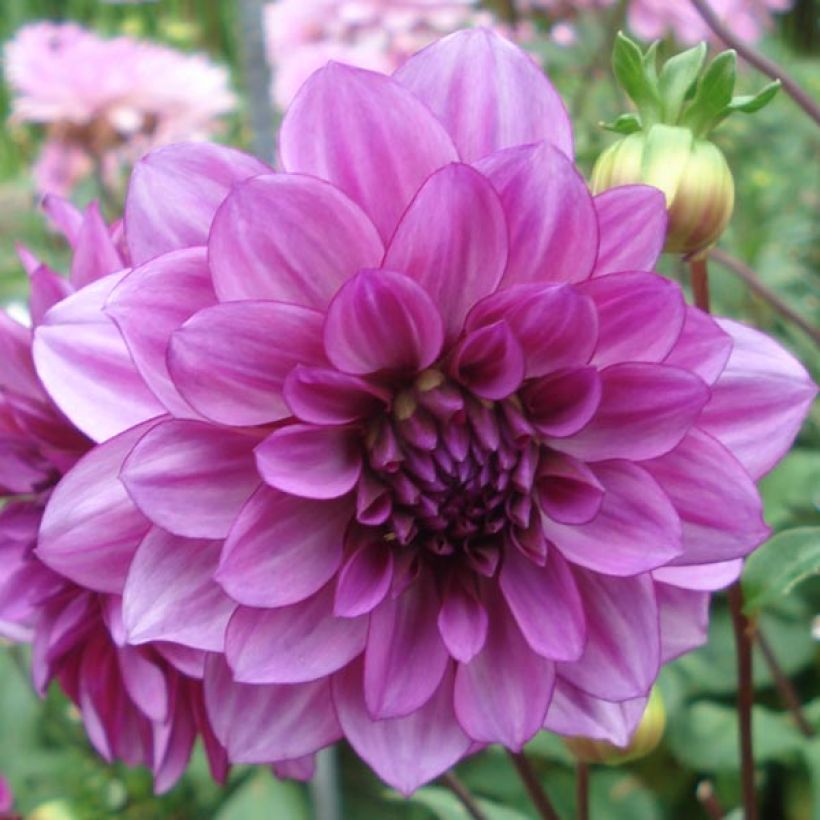

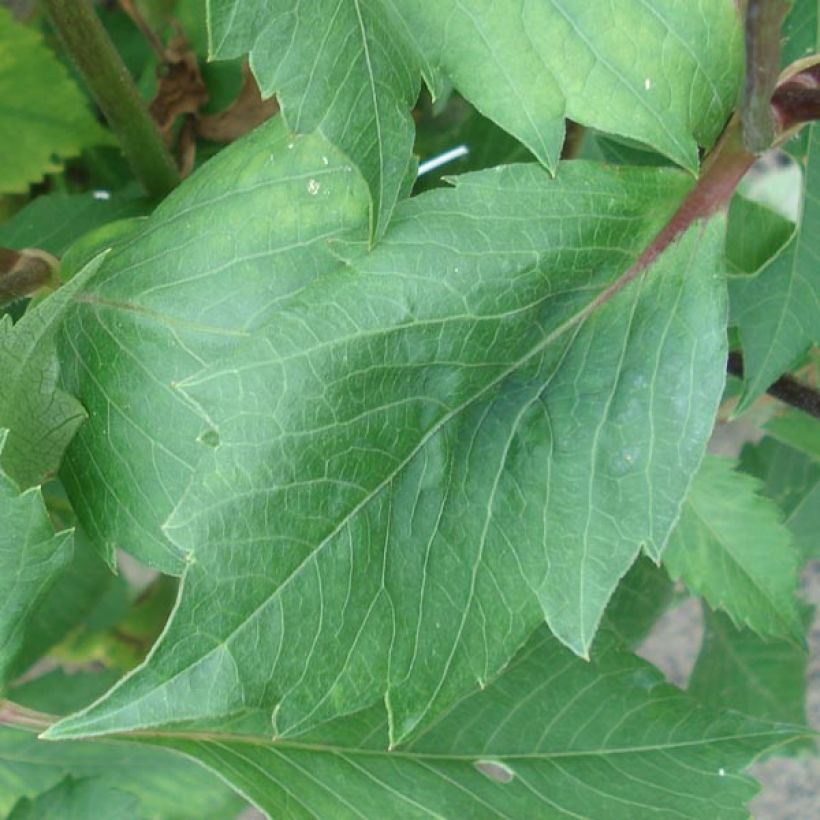

Plant habit
Flowering
Foliage
Botanical data
Dahlia
Blue Bell
Asteraceae
Dahlia
Cultivar or hybrid
Other Ornamental Dahlias
View all →Planting and care
Dahlia 'Blue Bell' is easy to grow in all regions. Plant in spring as soon as the last frost has passed. For abundant flowering, plant the tubers in full sun in rich, moist but well-drained soil. Stagnant moisture causes tuber rot. Amend the soil with compost and sand, if necessary. Work the soil deeply and enrich it, for example, with crushed horn or dehydrated blood. Place your tuber and crumble the soil well to fill without air pockets. Cover with about 6cm (2in) of soil. At the end of planting, water once abundantly and then repeat this watering regularly during the first 6 weeks to help with rooting.
Dahlias are sensitive to cold, so they need to be overwintered. Dig the tubers up when the first frost has blackened the foliage. Carefully remove the tubers. Remove as much soil as possible. Let the foliage dry so that the tubers can replenish their reserves. Then cut the stems to 10cm (4in). Spread your bulbs in a box lined with newspaper. Store them in a frost-free, dry, cool, and dark place, such as a garage or attic. In mild regions without frost, or those close to the coast, it is possible to leave them in place. In this case, simply cover the ground with a carpet of leaves or straw for protection.
This tall dahlia, with its hollow stems, is not resistant to wind or heavy rain. You can stake it, but this is not particularly aesthetically pleasing. To remove the need for staking, you can pinch the stems early or remove the axial flower buds to spread out the plant's habit, which will improve its resistance to bad weather. This also channels the flow of sap to a single flower, which will become larger and sturdier.
Planting period
Intended location
Care
-
, onOrder confirmed
Reply from on Promesse de fleurs
Similar products
Haven't found what you were looking for?
Hardiness is the lowest winter temperature a plant can endure without suffering serious damage or even dying. However, hardiness is affected by location (a sheltered area, such as a patio), protection (winter cover) and soil type (hardiness is improved by well-drained soil).

Photo Sharing Terms & Conditions
In order to encourage gardeners to interact and share their experiences, Promesse de fleurs offers various media enabling content to be uploaded onto its Site - in particular via the ‘Photo sharing’ module.
The User agrees to refrain from:
- Posting any content that is illegal, prejudicial, insulting, racist, inciteful to hatred, revisionist, contrary to public decency, that infringes on privacy or on the privacy rights of third parties, in particular the publicity rights of persons and goods, intellectual property rights, or the right to privacy.
- Submitting content on behalf of a third party;
- Impersonate the identity of a third party and/or publish any personal information about a third party;
In general, the User undertakes to refrain from any unethical behaviour.
All Content (in particular text, comments, files, images, photos, videos, creative works, etc.), which may be subject to property or intellectual property rights, image or other private rights, shall remain the property of the User, subject to the limited rights granted by the terms of the licence granted by Promesse de fleurs as stated below. Users are at liberty to publish or not to publish such Content on the Site, notably via the ‘Photo Sharing’ facility, and accept that this Content shall be made public and freely accessible, notably on the Internet.
Users further acknowledge, undertake to have ,and guarantee that they hold all necessary rights and permissions to publish such material on the Site, in particular with regard to the legislation in force pertaining to any privacy, property, intellectual property, image, or contractual rights, or rights of any other nature. By publishing such Content on the Site, Users acknowledge accepting full liability as publishers of the Content within the meaning of the law, and grant Promesse de fleurs, free of charge, an inclusive, worldwide licence for the said Content for the entire duration of its publication, including all reproduction, representation, up/downloading, displaying, performing, transmission, and storage rights.
Users also grant permission for their name to be linked to the Content and accept that this link may not always be made available.
By engaging in posting material, Users consent to their Content becoming automatically accessible on the Internet, in particular on other sites and/or blogs and/or web pages of the Promesse de fleurs site, including in particular social pages and the Promesse de fleurs catalogue.
Users may secure the removal of entrusted content free of charge by issuing a simple request via our contact form.
The flowering period indicated on our website applies to countries and regions located in USDA zone 8 (France, the United Kingdom, Ireland, the Netherlands, etc.)
It will vary according to where you live:
- In zones 9 to 10 (Italy, Spain, Greece, etc.), flowering will occur about 2 to 4 weeks earlier.
- In zones 6 to 7 (Germany, Poland, Slovenia, and lower mountainous regions), flowering will be delayed by 2 to 3 weeks.
- In zone 5 (Central Europe, Scandinavia), blooming will be delayed by 3 to 5 weeks.
In temperate climates, pruning of spring-flowering shrubs (forsythia, spireas, etc.) should be done just after flowering.
Pruning of summer-flowering shrubs (Indian Lilac, Perovskia, etc.) can be done in winter or spring.
In cold regions as well as with frost-sensitive plants, avoid pruning too early when severe frosts may still occur.
The planting period indicated on our website applies to countries and regions located in USDA zone 8 (France, United Kingdom, Ireland, Netherlands).
It will vary according to where you live:
- In Mediterranean zones (Marseille, Madrid, Milan, etc.), autumn and winter are the best planting periods.
- In continental zones (Strasbourg, Munich, Vienna, etc.), delay planting by 2 to 3 weeks in spring and bring it forward by 2 to 4 weeks in autumn.
- In mountainous regions (the Alps, Pyrenees, Carpathians, etc.), it is best to plant in late spring (May-June) or late summer (August-September).
The harvesting period indicated on our website applies to countries and regions in USDA zone 8 (France, England, Ireland, the Netherlands).
In colder areas (Scandinavia, Poland, Austria...) fruit and vegetable harvests are likely to be delayed by 3-4 weeks.
In warmer areas (Italy, Spain, Greece, etc.), harvesting will probably take place earlier, depending on weather conditions.
The sowing periods indicated on our website apply to countries and regions within USDA Zone 8 (France, UK, Ireland, Netherlands).
In colder areas (Scandinavia, Poland, Austria...), delay any outdoor sowing by 3-4 weeks, or sow under glass.
In warmer climes (Italy, Spain, Greece, etc.), bring outdoor sowing forward by a few weeks.






























